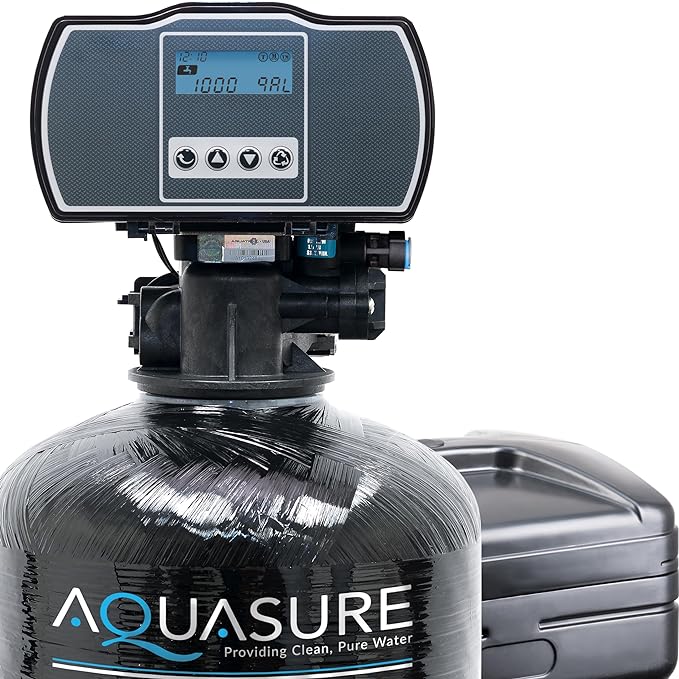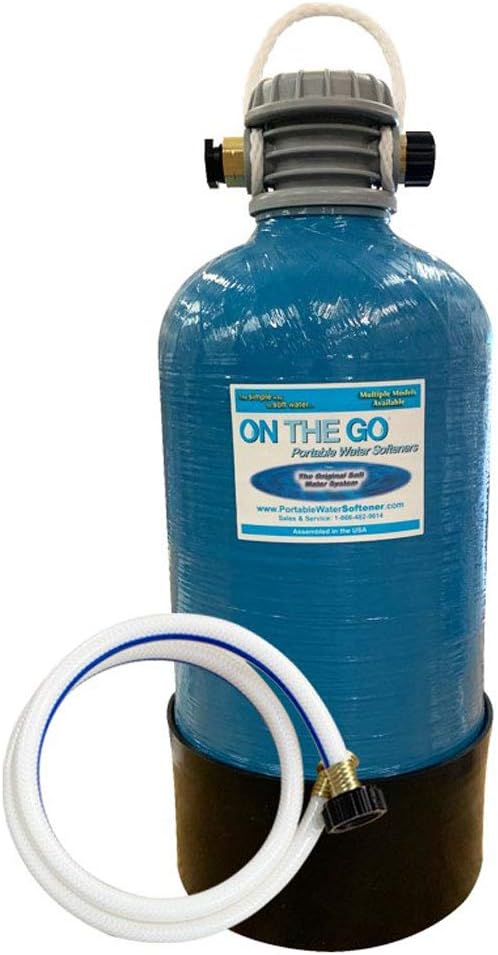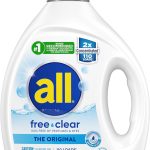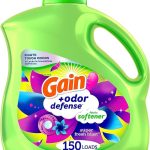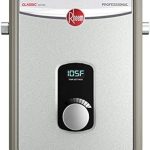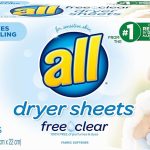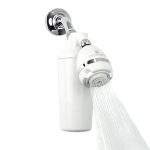You might be surprised to learn that hard water affects over 85% of American households, leading to scaling, clogged pipes, and even skin irritation. But what can you do about it? Water softeners can be a game-changer, but with so many options on the market, it’s tough to know where to start. That’s why we’ve narrowed it down to the top three best water softeners that can transform your home’s water quality. From whole-house systems to portable solutions, we’ll explore the features and benefits that make each one stand out – but first, let’s delve into what makes these top contenders tick.
Contents
Aquasure Harmony Series Whole House Water Softener
If you’re looking for a whole-house water softener that can tackle even the toughest water hardness, the Aquasure Harmony Series is an excellent choice, rated to treat 48,000 Grains of Hardness and eliminate skin-damaging minerals like iron and magnesium.
This water softener is designed to reduce hardness in water, eliminate scale, and prevent spot buildup throughout your home.
With its advanced digital metered control head, you can expect efficient and reliable performance.
Additionally, the Aquasure Harmony Series features a time-delayed, metered, and manual double backwash for superior regeneration, cleaning, and performance.
With its high-efficiency design, you can enjoy soft water throughout your home, and its compact design makes it easy to install and maintain.
Best For: Those who live in areas with extremely hard water and want a high-capacity whole-house water softener that can effectively remove minerals like iron and magnesium.
Pros:
- Equipped with advanced digital metered control head for efficient and reliable performance
- Features time-delayed, metered, and manual double backwash for superior regeneration, cleaning, and performance
- Compact design makes it easy to install and maintain
Cons:
- Some users have reported issues with lost totalizer gallons and clock inaccuracy
- Hard water may be present before regeneration
- Requires proper installation and maintenance to function optimally
GE Water Softener System
The GE Water Softener System is an ideal choice for homeowners who want precise control over their water softness levels with its advanced custom select blending valve.
You’ll appreciate the GE exclusive salt saver feature, which reduces salt consumption by up to 34%.
Plus, the days to empty feature guarantees you’ll never have to guess when to refill the salt tank.
This system uses up to 35% less water and features sediment filtration with a self-cleaning sediment filter to protect your home’s plumbing.
While installation may require a plumber’s assistance, you’ll be rewarded with improved water quality for drinking, laundry, and more.
Best For: Homeowners who want precise control over their water softness levels and are looking for a system that reduces salt consumption and uses less water.
Pros:
- The system features a custom select blending valve, allowing users to choose their desired water softness level.
- The salt saver feature reduces salt consumption by up to 34%, making it a cost-effective option.
- The system uses up to 35% less water and has a self-cleaning sediment filter to protect home plumbing.
Cons:
- Installation may require a plumber’s assistance and can be time-consuming.
- Initial setup and testing may require patience and troubleshooting, and PVC glue used in installation may cause temporary odor and taste issues.
- Warranty issues may require self-diagnosis and repair by the user, and GE customer support may not provide adequate assistance or resolution.
On The Go OTG4-VM-DBLSOFT Portable Compact Water Softener
For those who need a reliable and portable water softening solution, the On The Go OTG4-VM-DBLSOFT Portable Compact Water Softener stands out with its 16,000 grain capacity and compact design.
You’ll appreciate its drinking water safe brass fittings and the fact that it’s assembled in the USA by U.S. workers in Indiana.
This water softener is designed to reduce hard water issues, improve your skin and hair health, and remove mineral buildup.
With its compact size (10 x 10 x 24 inches) and lightweight design (34.4 pounds), you can take it with you wherever you go.
Plus, with a 4.7-star rating from 496 customers, you can trust that it’s a reliable choice.
Best For: Those who need a portable and reliable water softening solution for improving skin and hair health, and removing mineral buildup.
Pros:
- Portable and compact design makes it easy to take on the go
- 16,000 grain capacity provides effective water softening
- Assembled in the USA with drinking water safe brass fittings
Cons:
- Requires regular regeneration and maintenance
- May not be suitable for large households or high water usage
- No explicit warranty duration mentioned
Factors to Consider When Choosing Water Softeners
When shopping for a water softener, you’ll want to deliberate several key factors to guarantee you get the right one for your needs.
You’ll need to ponder the quality of your water, how big of a system you require, and how often you’re willing to maintain it.
Water Quality Considerations
Considering your specific water quality needs is essential when selecting a water softener that effectively addresses your hard water concerns.
You’ll want to think about the level of hardness in your water, measured in grains per gallon. If your water is moderately hard (3.6-7 grains per gallon) or hard (7.1-10.5 grains per gallon), you’ll need a water softener that can effectively remove hard minerals like iron and magnesium.
When choosing a water softener, you should also ponder the type of water treatment used. Ion exchange systems, like traditional water softeners, are effective in removing hard minerals but may add salt to the water. This could be a concern if you’re on a low-sodium diet or have specific health needs.
The quality of softened water is measured by its grain capacity, with higher capacities indicating a greater ability to remove hard minerals. Look for a water softener with a high grain capacity to guarantee your water is properly treated.
System Size Requirements
You’ll need to determine the right size of your water softener system based on your household’s specific needs, taking into account the number of people, water hardness, and peak water demand.
As a general rule, plan for 1-2 gallons of soft water per person per day. So, if you have a family of four, you’ll need a system that can handle at least 4-8 gallons of soft water daily.
The hardness of your water also plays a significant role in determining the system size. If your water is extremely hard, you’ll require a larger system to achieve the same level of softening.
Additionally, consider the maximum flow rate of the system, measured in gallons per minute (GPM), to guarantee it can meet your household’s peak water demand.
When selecting a system, pay attention to the grain capacity, such as 48,000 grains in the Aquasure Harmony Series.
This capacity should be considered in relation to your household’s water usage and hardness level.
Proper sizing is vital to effective water softening and prevent undersized systems from becoming exhausted too quickly.
Maintenance Frequency Needs
Now that you’ve determined the right system size for your household, it’s time to think about how often you’ll need to maintain your water softener to guarantee it continues to remove minerals effectively.
The frequency of maintenance depends on several factors, including the type of water softener, your water usage, and the level of water hardness.
Some systems may require regeneration every 1-2 weeks, while others may need more frequent attention. To prevent reduced performance, increased salt consumption, and even system failure, regular maintenance is crucial.
The type of resin used in the water softener also plays a role in determining the maintenance frequency.
By staying on top of maintenance, you’ll not only prolong the lifespan of your water softener but also reduce salt consumption and guarantee the continued effective removal of minerals that cause water hardness.
Make sure to factor in the maintenance needs of your chosen water softener to guarantee it runs smoothly and efficiently for years to come.
Salt Consumption Concerns
When choosing a water softener, keep in mind your salt consumption concerns, as excessive salt usage can lead to increased costs and environmental concerns.
You’ll want to think about a system that allows you to customize your salt usage based on your specific needs. The GE Water Softener System, for instance, lets you set your salt level between 2 and 40, giving you control over your salt consumption. Plus, it reduces salt consumption by up to 34% compared to other water softeners, making it a more efficient option.
Additionally, the system alerts you when it’s time to refill the salt, so you’ll never have to guess when to add more.
In contrast, the Aquasure Harmony Series Whole House Water Softener and the On The Go OTG4-VM-DBLSOFT Portable Compact Water Softener don’t provide specific information on salt consumption rates or reduction features.
However, the Aquasure’s metered control head and advanced digital on-demand meter control head may help optimize salt usage.
The On The Go’s compact design and portable nature might appeal to users who want a low-salt or salt-free water softening experience.
As you weigh your options, take into account your salt consumption concerns and choose a system that aligns with your needs and priorities.
Installation Complexity Levels
The type of plumbing in your home substantially affects the installation complexity level of a water softener, and understanding these factors can help you prepare for a smoother setup process.
For instance, PVC glue used in installation may cause temporary odor and taste issues, requiring patience and troubleshooting to resolve. If you’re not familiar with DIY plumbing projects, consider hiring a plumber to ease the installation process.
Some water softeners, like the GE Water Softener System, require more complex procedures, including sediment filtration with a self-cleaning sediment filter to protect your home’s plumbing.
Additionally, the size and weight of the water softener, such as the 120-pound Aquasure Harmony Series Whole House Water Softener, can impact the installation complexity level. You may need extra manpower or equipment to maneuver the unit into place.
To verify your water softener functions effectively, proper installation and maintenance are vital. Wait for the PVC glue to cure before using the water softener and perform regular regeneration and maintenance tasks.
Flow Rate Capacity Needs
When selecting a water softener, it’s essential to consider how much water your household uses daily, as the flow rate capacity directly impacts your water pressure and overall water experience.
The flow rate capacity measures how quickly water can flow through the system, and a higher capacity is necessary for larger households or homes with multiple bathrooms.
A minimum of 10-12 gallons per minute (GPM) is recommended for a typical household. For example, the Aquasure Harmony Series Whole House Water Softener has a maximum flow rate of 12 GPM, making it suitable for households with moderate to high water demands.
When determining the required flow rate capacity, consider the number of people in your household, the number of bathrooms, and your average water usage.
Failing to choose a water softener with a sufficient flow rate capacity can lead to reduced water pressure, negatively impacting appliance performance and overall household water usage.
Make sure to choose a water softener that can keep up with your household’s water needs to provide a smooth and efficient water experience.
Resin Quality Importance
As you shop for a water softener, it’s essential that you prioritize resin quality, since it plays a pivotal role in determining the system’s overall performance, longevity, and ability to effectively remove hard minerals and contaminants from your water supply.
High-quality resin is vital, as it directly impacts the system’s efficiency, flow rate, and capacity. Premium resins can capture a wider range of impurities, providing cleaner and safer drinking water. They also tend to last longer and require less frequent regeneration, reducing maintenance needs.
When choosing a water softener, look for systems that come pre-filled with high-quality resin, like the Aquasure Harmony Series. This confirms that your system will perform flawlessly from the start.
Be wary of systems with low-quality resin, as they may not effectively remove contaminants, leading to poor water quality. By prioritizing resin quality, you’ll enjoy better-tasting water, reduced scaling, and a longer-lasting system. Don’t compromise on resin quality – it’s a critical factor in getting the best water softener for your needs.
Digital Meter Accuracy
When selecting a water softener, consider a digital meter that accurately tracks your water usage, as it’s essential for efficient regeneration and salt consumption.
This feature allows the unit to regenerate only when necessary, reducing waste and maximizing performance. However, the accuracy of the digital meter is vital, as an inaccurate reading can lead to premature regeneration, wasting salt and water, or delayed regeneration, causing hard water to flow into your home.
Look for a digital meter that can measure water usage in increments of 0.1 gallons or less, ensuring precise readings and efficient operation.
Some advanced models may also display additional information such as flow rate, total gallons used, and time until next regeneration. Additionally, some digital meters feature advanced features like automatic adjustments for changes in water usage patterns, ensuring the water softener operates at peak efficiency.
Frequently Asked Questions
Can Water Softeners Be Used for Well Water Treatment?
You’re wondering if water softeners can tackle well water treatment. Yes, they can! Since well water often contains high levels of minerals, a water softener can effectively remove excess calcium and magnesium, making your water safer and more pleasant to use.
Do Water Softeners Remove Lead From Drinking Water?
You’re wondering if water softeners remove lead from drinking water. The answer is no, they don’t directly remove lead; their primary function is to reduce water hardness, not target heavy metals like lead.
How Long Do Water Softener Resin Beds Typically Last?
You’re probably wondering how long your water softener’s resin bed will last. Typically, it’ll need replacement every 8-10 years, depending on water quality, usage, and maintenance.
Can I Install a Water Softener Myself or Do I Need a Plumber?
As you stand in your DIY-filled garage, wondering if you can tackle the task, know that installing a water softener yourself is doable, but be prepared to sweat, and consider your plumbing skills before diving in.
Are Water Softeners Effective in Removing Sulfur Smell From Water?
You’re wondering if water softeners can eliminate that awful sulfur smell from your water. Good news: they can! Water softeners are effective in removing hydrogen sulfide, the culprit behind the rotten egg smell, from your water supply.
Conclusion
You’ve got the power to transform your home’s water quality with the right softener!
Like a master chef seasoning a dish, you can tailor your water to your taste with the top-rated models.
Whether you prioritize efficiency, portability, or advanced control, the Aquasure Harmony Series, GE Water Softener System, or On The Go OTG4-VM-DBLSOFT Portable Compact Water Softener has got you covered.
Now, go ahead and savor the softness!
